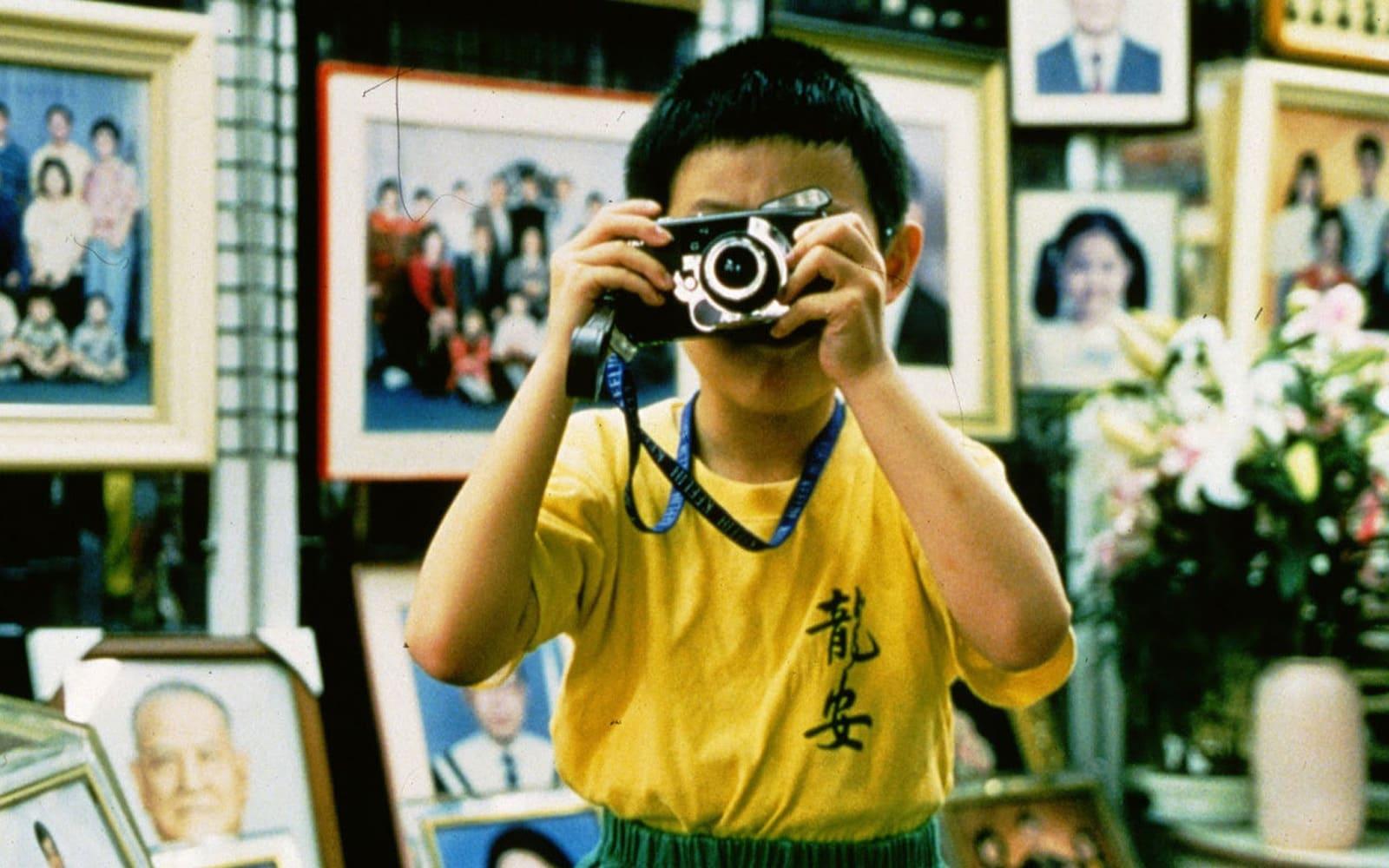Yi Yi by Edward Yang (Review)

Director Edward Yang certainly embarked on quite a task with Yi Yi. For nearly 3 hours, he attempts to document the lives of a single family as they deal with a wide range of situations and emotions. The movie begins with a wedding and ends with a death, and in-between is betrayal, discovery, heartbreak, and forgiveness. Some critics have compared it to Magnolia, presumably because both pictures are basically ensemble pictures with no singular plot, but rather a series of stories loosely interwoven together.
I don’t necessarily buy that, simply because such comparisons simply scratch the surface of both movies. I will say that Magnolia certainly resonated more with me as an individual. But Yi Yi left me cold many times throughout the picture. It’s definitely a trying film to watch at times; Yang is very content to let the scenes speak for themselves, without feeling a need to use dialog. Many scenes are simple setups to let the characters’ actions, or lack thereof, convey all of the emotions. Sometimes this approach works, but at other times it feels conspicuous and halting.
The movie also suffers because, to be honest, some of the stories simply are not interesting. At times, peripheral characters take over the film’s focus, whereas it feels like more important, or at the very least, more interesting characters are forced into the background. The two most interesting characters, the family’s daughter, Ting-Ting, and son, Yang Yang, often drop out of the film. However, I think the movie would’ve benefited greatly if had spent more time looking at the scenarios through their eyes.
One thing, however, is that Yi Yi is simply gorgeous to watch. At times, I was reminded of The Scent of Green Papaya, another slow-moving yet beautiful film. Both film’s take great joy and peering into the ordinary and finding the beauty within. Yang seems very fond of shooting through windows, giving us a near-voyeuristic look at what’s going inside. These shots are always gorgeous, with the reflections (usually of traffic and crowds of people) providing the tension in the scene.
But Yi Yi’s close attention to detail also makes for a film that is, well, a little trying at times. Even the most emotional scenes feel subdued simply because of the vast spaces between them. I feel like I should be “haunted” by this film, that it should be lodged in the back of my head as I try and figure out the significance of this scene or that scene. But that’s not the case. I want to give this film another viewing, just to see if I missed anything. I’m willing to give Yang the benefit of the doubt. Perhaps that might change my opinion of Yi Yi, but until then, my feelings will have to remain mixed.
